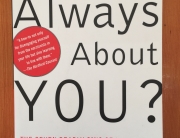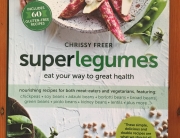 When you embark on a detox program (like our Community Detox), it is likely that you will be told to avoid gluten. In fact, eating gluten free has become somewhat fashionable, with many people claiming to feel better when they avoid it. But what’s so bad about gluten anyway?
When you embark on a detox program (like our Community Detox), it is likely that you will be told to avoid gluten. In fact, eating gluten free has become somewhat fashionable, with many people claiming to feel better when they avoid it. But what’s so bad about gluten anyway?
Gluten is a protein which is found in wheat, rye, barley, triticale, oats, and ancient wheat grains like spelt and kamut. This protein is difficult for some people to digest. In mild cases this can manifest as bloating or rumbling tummy, but in serious allergies it can cause immediate and intense symptoms.
What’s the difference between a gluten allergy and an intolerance?
With a food allergy, the body’s immune system gets involved and mistakenly identifies the food as being a foreign invader. The immune response can produce rashes, inflammation, digestive symptoms, and in severe cases, anaphylaxis. With food allergies the symptoms usually begin soon after eating the food. Coeliac disease falls under the banner of food allergies.
Food intolerances often start out as milder symptoms which become more serious over time. These symptoms occur due to the inability of the body to properly digest the food. If left untreated, even a mild gluten intolerance can take its toll on the body, causing damage to the digestive system.
What symptoms have been linked with gluten allergy/intolerance?
Symptoms include:
- eczema, hives, rashes and acne
- reflux, bloating and heavy feeling in the stomach after eating
- irritable bowel, gas, diarrhea, constipation
- asthma, runny nose, blocked ears, sinus troubles
- joint pain and stiffness
- foggy brain, headaches and fatigue
- depression and anxiety
Isn’t a gluten free diet just for coeliacs?
No! Just because you’re not coeliac doesn’t mean that it’s all smooth sailing. Gluten intolerance is different to coeliac disease, and won’t show up on a coeliac test. Coeliac disease is an inherited disorder, characterized by a high level allergy to gluten, and specific changes in the structure of the bowel. So if you have “passed” a coeliac test, you may still have a gluten intolerance.
So which grains are ok to eat?
Here is a list of gluten free grains:
- Rice
- Corn
- Millet
- Buckwheat
- Quinoa (actually a seed but cooks and tastes like a grain)
- Amaranth (another seed like quinoa)
- Gluten free oats (available at most health food stores)
Can I eat oats?
Oats technically do contain gluten, but the type of protein contained in oat gluten (called avenin) is slightly different to the gliadin and glutenin found in wheat, barley and rye, making them easier for some people to tolerate. Many people with gluten intolerances are able to digest oats, but be super careful if you have coeliac disease or serious intolerance symptoms.
Gluten free oats still contain some avenin, but are carefully checked to make sure they don’t contain contaminants from other grains during shipping and processing (a common problem because oats are often grown on the same farms as wheat). If you are going to try eating oats, these are your best bet.
What to have instead of your usual foods
Here are some simple substitutions that you can make:
- Rice or millet bread
- Buckwheat, rice or corn pasta
- Whole grain rice crackers
- Buckwheat, kelp or 100% rice noodles
- Coconut flour muffins
- Quinoa porridge
Beware – many gluten free products like breads and pastas are highly processed and should be regarded as “sometimes foods” – these products may not be suitable during a detox, especially if they contain lots of additives. Just because a product is gluten free doesn’t necessarily mean that it is healthy! If in doubt, check the ingredients with your naturopath.
During a detox, you need to give your digestive system a break so that it can eliminate toxins without having to deal with other incoming nasties. Avoiding gluten during a detox can give your body the chance to repair and recover. Try keeping a diary of your symptoms so you can watch your progress. This will help to keep you motivated so that you stay on track.
by Jules Galloway
Hi, my name is Jules Galloway and I’m a qualified naturopath, food and wine lover, beginner surfer and recent seachanger, living just 10 minutes from Byron Bay. My goal is to educate and motivate you to explore a variety of foods, to help you to make small, achievable changes to increase your wellbeing, and to spread the word that it’s easier than you think to feel awesome again! Connect with Jules on Facebook, Twitter or her website.












































































































































